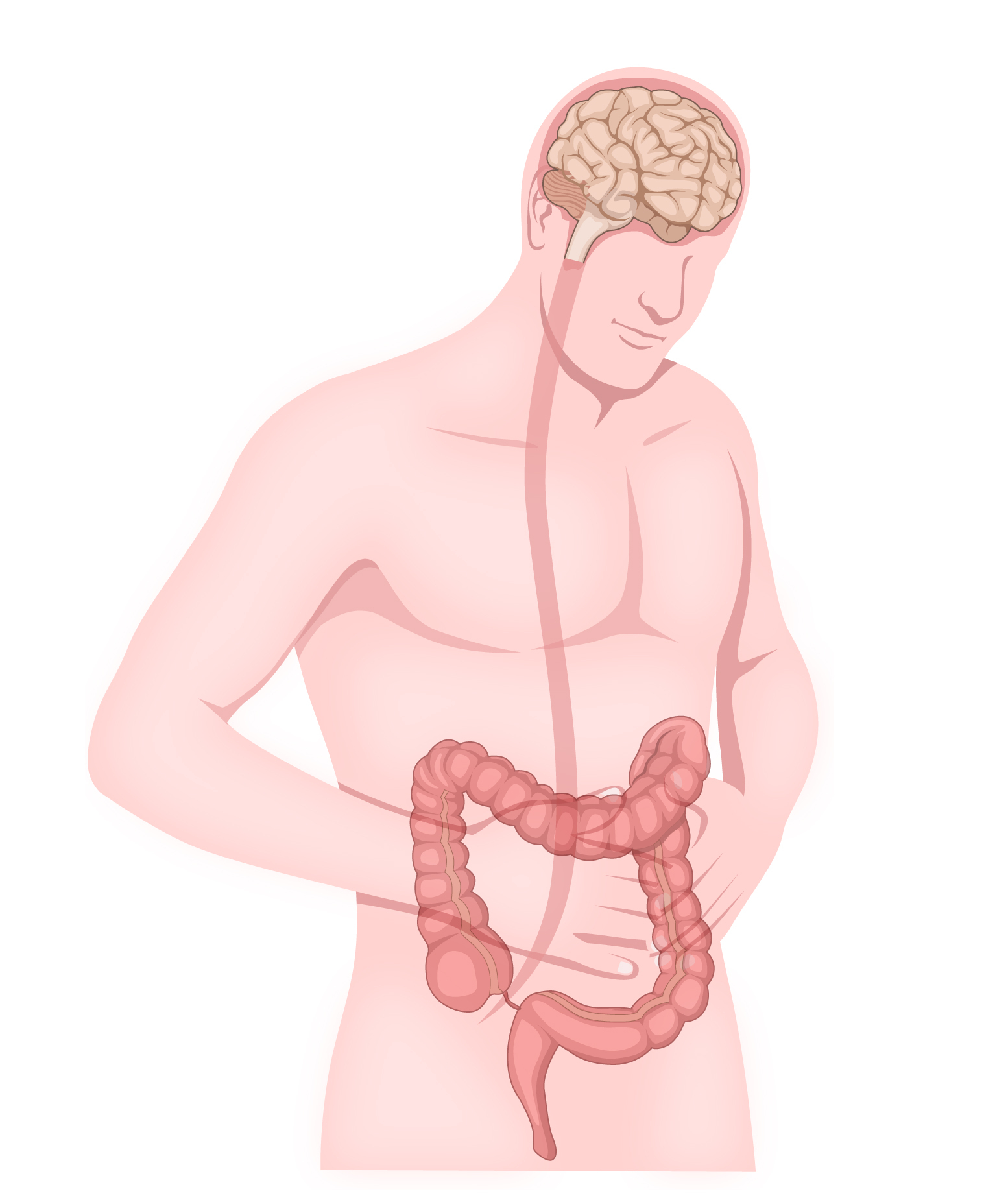The brain-gut axes
The importance of the gut and its interaction with the brain
The intestinal microbiota is a key element in intestinal immunity.
The intestinal ecosystem consists of :
- an intestinal mucosa that lines the intestine and acts as a selective barrier that must let through only the "elements of interest". If the permeability is disturbed or deregulated, this can lead to the passage of undesirable molecules, which is the starting point for many disorders
- an intestinal microbiota with a very high density of bacteria. Throughout its life, its role is essential to the barrier effect of the intestinal mucosa, which fights against unwanted substances. The microbiota competes with pathogenic bacteria and also produces bactericidal substances
- an intestinal immune system, 70% of immune cells are located in the intestine.
There is a permanent interaction between the central nervous system and the digestive tract, which is carried out by the sympathetic nervous pathways thanks to the splanchnic nerves, as well as by the parasympathetic nervous pathways thanks to the wave nerves of the autonomic nervous system. Indeed, 95% of serotonin is produced in the intestine. Serotonin is a neurotransmitter in the central nervous system and in the intramural plexuses of the digestive tract, it is also called "happiness hormone". It is notably involved in mood management and is associated with the state of happiness when it is at a balanced level. Therefore, it is also involved in moral suffering and depression when it is at a low level.
On the other hand, some studies suggest that the intestinal microbiota would be involved in the communication between the intestine and the brain and would thus play a role on the cerebral functioning. Some researchers are therefore interested in the possible link between an imbalance in the intestinal microbiota and certain psychological disorders such as stress or anxiety.

Are you interested in the subject?
Would you like a specific training for yourself or your team on this topic?
Do not hesitate to contact us.